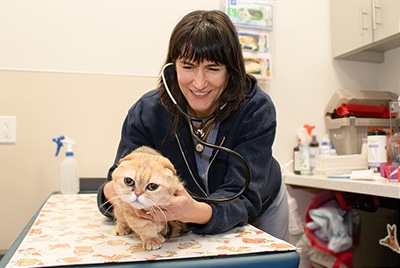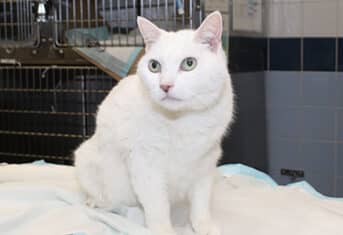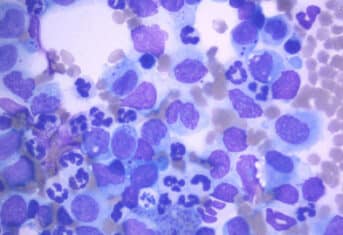Feline Research 2023: Caregiver Burden, Medication Preferences, and COVID-19

Feline Research 2023: Caregiver Burden, Medication Preferences, and COVID-19
June is Adopt a Shelter Cat Month, and we’re highlighting our feline friends throughout month with a series of feline-focused posts. Last week, I wrote about the most common type of cancer diagnosed and treated in cats, lymphoma. This final June blogpost, I will summarize the latest feline research studies that directly impact cat families.
Caregiver Burden for Feline Families
This may be an unfamiliar term, but I guarantee most of my readers have experienced this phenomenon. Caregiver burden is the emotional, psychological, and physical toll of providing care to a sick family member or friend. Caring for a sick cat is no exception. A recent study from the Journal of Feline Medicine and Surgery entitled “Online survey of owners’ experiences of medicating their cats at home” details cat families experiences with a sick feline family member. Most cat caretakers rated liquids as easier to administer than tablets. Injections, like insulin got a big thumbs up for ease of administration. Three quarters of cat caretakers reported their cat tried to bite or scratch them during medication administration. This is a clear example of the burden of feline caregiving.
Tips for Cat Owners:
- Ask for help medicating your cat either by changing medication formulation or by having a lesson from a professional cat medicator! AMC has how-to videos that can help.
- For more tips, read a prior blogpost on being your pet’s best nurse.
Feline Medication Preferences
Medicating cats seems to have been a recent theme in feline research. Another recent study looked at cats’ preference for flavoring in medication. This flavoring is introduced when a tablet is converted into a liquid medication and is used to encourage the feline patient to take the medication. In the study, healthy cats were given the opportunity to taste various oil and water-based flavorings voluntarily. Most cats rejected all of them, which is not surprising given the well-known finicky nature of cats. However, if a feline research subject was going to accept a flavor, it was more likely to choose oil based and more likely to choose savory than sweet. Even though you think you know what your cat likes, the study results did not support the cat family’s ability to predict what flavor a cat would like.
Tips for Cat Owners:
- If your cat rejects a flavored medication, ask for an oil-based flavoring and don’t hesitate to try a flavor you don’t think your cat will like. She might surprise you.
SARS-CoV-2 Infection in Cats
Early in the COVID-19 pandemic, researchers noticed that cats seemed susceptible to infection by SARS-CoV-2, and the first animal infections reported in New York were in the big cats (lions and tigers) in the Bronx Zoo. Now, a recent study confirms the susceptibility of cats to the SARS-CoV-2 virus and their role in the spread of COVID-19. The study showed that cats infected with the SARS-CoV-2 virus shed the virus into their environment, but the virus remained active for only about eight hours in the environment. Cats can also directly infect other cats through sneezes and coughs. However, the most significant route of infection for cats (and by the way dogs) is from their human family members with COVID-19.
Tips for Cat Owners:
- If you have COVID-19, quarantine yourself from all members of the family, including your cats to protect their health.































